detail profile john boles

John Boles
Джон Боулс
atau dikenal sebagai
Riwayat Hidup
From Wikipedia, the free encyclopedia.
John Boles (October 28, 1895 – February 27, 1969) was an American singer and actor best known for playing Victor Moritz in the 1931 film Frankenstein.
He started out in Hollywood in silent movies, but became a huge star with the advent of talkies.
After the war, Boles moved to New York to study music.
He quickly became well known for his talents and was selected to replace the leading man in the 1923 Broadway musical Little Jesse James.
He became an established star on Broadway and attracted the attention of Hollywood producers and actors.
Boles' Broadway credits include One Touch of Venus (1943), Kitty's Kisses (1925), Mercenary Mary (1924), and Little Jessie James (1923).
He was hired by MGM to appear in a silent film in 1924.
He starred in two more films for that studio before returning to New York and the stage.
In 1927, he returned to Hollywood to star in The Love of Sunya (1927) opposite Gloria Swanson, which was a big success for him.
Unfortunately, because the movies were still silent he was unable to show off his singing ability until late in the decade.
In 1929, Warner Brothers hired him to star in their lavish musical operetta The Desert Song (1929).
This film featured sequences in Technicolor and was a box-office success.
Soon after, Radio Pictures (later known as RKO) selected him to play the leading man in their extravagant production (the last portion of the film was photographed in Technicolor) of Rio Rita, opposite Bebe Daniels.
Audiences were enthralled by his beautiful voice, and John Boles suddenly found himself in huge demand.
RCA Victor even hired him to make phonograph records of songs that he had sung in his films.
As soon as Rio Rita was completed, Boles went back to Warner Brothers as the leading man in an even more extravagant musical entitled Song of the West (1930) that was filmed entirely in Technicolor.
Shortly after this film, Universal Pictures offered John Boles a contract, which he accepted.
He starred in a number of pictures for them, most notably the all-Technicolor musical revue entitled The King of Jazz (1930) and a historical operetta entitled Captain of the Guard (1930).
In 1931, he starred in One Heavenly Night (1931), which would prove to be his last major musical.
Boles portrayed Victor Moritz in Frankenstein (1931).
He starred with Irene Dunne in a 1934 film adaptation of Edith Wharton's 1920 novel The Age of Innocence directed for RKO Radio Pictures by Philip Moeller, and took the role of Edward Morgan in Curly Top (1935), starring Shirley Temple In 1937, Boles starred alongside Barbara Stanwyck in the King Vidor classic Stella Dallas.
In 1943, he co-starred with Mary Martin and Kenny Baker in One Touch of Venus.
Description above from the Wikipedia article John Boles, licensed under CC-BY-SA, full list of contributors on Wikipedia.
Info Pribadi
Peran Yang Di Mainkan John Boles
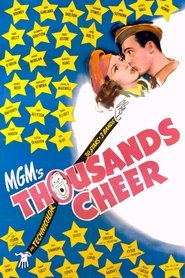 Acrobat Eddie Marsh is in the...
Acrobat Eddie Marsh is in the...Thousands Cheer 1943
Acrobat Eddie Marsh is in the army now. His first act is to become friendly with Kathryn Jones, the colonel's pretty daughter. Their romance hits a few snags, including disapproval from her father. Eddie's also plagued by fear of having an accident during his family's trapeze act in the army variety show, which also features a gallery of MGM stars.
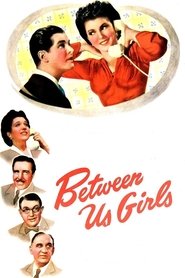 A 20yearold stage actress takes on...
A 20yearold stage actress takes on...Between Us Girls 1942
A 20-year-old stage actress takes on her most challenging role when she pretends to be her own mother's 12-year-old daughter.
 A struggling singer devoted to his...
A struggling singer devoted to his...Road to Happiness 1941
A struggling singer, devoted to his young son, fears the child's super-spoiled, unloving but wealthy mother will gain custody of the boy.
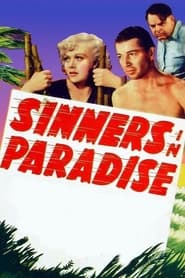 The survivors from a plane crash...
The survivors from a plane crash...Sinners in Paradise 1938
The survivors from a plane crash are washed up on an island where the only inhabitants are Mr. Taylor and his servant, Ping. The mismatched group must learn to get along and work together if they are to convince Taylor to let them borrow his boat and return to the main land.
 After divorcing a society man a...
After divorcing a society man a...Stella Dallas 1937
After divorcing a society man, a small-town woman tries to build a better life for their daughter.
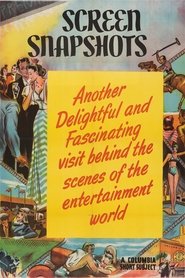 Viewers are provided a visit to...
Viewers are provided a visit to...Screen Snapshots (Series 16, No. 1) 1936
Viewers are provided a visit to Ken Maynard's private circus; Bette Davis poses for her portrait; Frank McHugh plays with his children; a visit to the West Side Tennis Club affords glimpses of many stars.
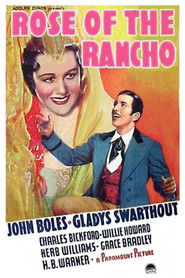 It is California in 1852 that only...
It is California in 1852 that only...Rose of the Rancho 1936
It is California in 1852 that only recently being surrendered by Mexico to the United States and admitted into the union. Most of the land-owners of California were the descendants of the Dons who had colonized it a hundred years before and whose title deeds bore the signature and seal of a long-dead Spanish king. But, by a loop-hole in the law, the title-deeds of the Dons could not be recognized, and this opened the door of organized gangs of land-grabbers, such as the one led by Joe Kincaid, to operate with a prime excuse for legitimate plunder and robbery. In most cases the law was unable to cope with the situation. Then Rosita Castro, the daughter of Don Pasqual Castro, masked and disguised as a man, organized a band of vigilantes to fight against the tyranny of the outlaws, aided by an undercover federal agent, Jim Kearney.
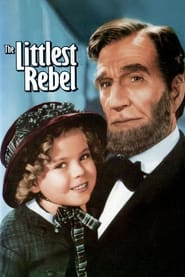 Virgie Carys father a rebel officer...
Virgie Carys father a rebel officer...The Littlest Rebel 1935
Virgie Cary's father, a rebel officer, sneaks back to his rundown plantation to see his dying wife and is arrested. A Yankee officer takes pity and sets up an escape. Everyone is captured and the officers are to be executed. Virgie and Uncle Billy beg President Lincoln to intercede.
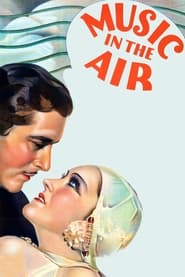 A songwriters young daughter June Lang...
A songwriters young daughter June Lang...Music in the Air 1934
A songwriter's young daughter (June Lang) begins to dream of stardom when she's offered the lead role in a new operetta.
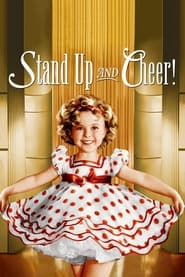 President Franklin Roosevelt appoints a theatrical...
President Franklin Roosevelt appoints a theatrical...Stand Up and Cheer! 1934
President Franklin Roosevelt appoints a theatrical producer as the new Secretary of Amusement in order to cheer up an American public still suffering through the Depression. The new secretary soon runs afoul of political lobbyists out to destroy his department.
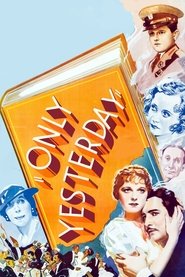 On the back of the Wall...
On the back of the Wall...Only Yesterday 1933
On the back of the Wall Street Crash of 1929, a young business man is about to commit suicide. With the note to his wife scribbled down and a gun in his hand, he notices a thick envelope addressed to him at the desk. As he begin to read, we're taken back to the days of WW1 and his meeting with a young woman named Mary Lane.
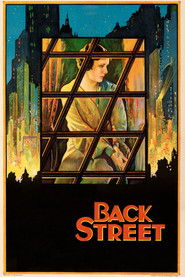 A womans love for and devotion...
A womans love for and devotion...Back Street 1932
A woman's love for and devotion to a married man results in her being relegated to the "back streets" of his life.
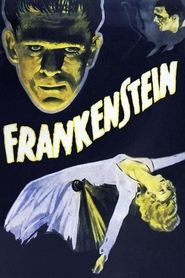 Tampering with life and death Henry...
Tampering with life and death Henry...Frankenstein 1931
Tampering with life and death, Henry Frankenstein pieces together salvaged body parts to bring a human monster to life; the mad scientist's dreams are shattered by his creation's violent rage as the monster awakens to a world in which he is unwelcome.
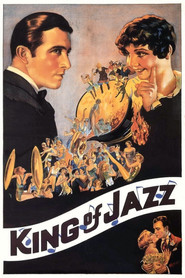 Made during the early years of...
Made during the early years of...King of Jazz 1930
Made during the early years of the movie musical, this exuberant revue was one of the most extravagant, eclectic, and technically ambitious Hollywood productions of its day. Starring the bandleader Paul Whiteman, then widely celebrated as the King of Jazz, the film drew from Broadway variety shows to present a spectacular array of sketches, performances by such acts as the Rhythm Boys (featuring a young Bing Crosby), and orchestral numbers—all lavishly staged by veteran theater director John Murray Anderson.
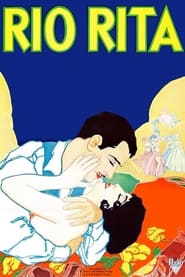 Capt James Stewart pursues the bandit...
Capt James Stewart pursues the bandit...Rio Rita 1929
Capt. James Stewart pursues the bandit "The Kinkajou" over the Mexican border and falls in love with Rita, though he suspects that her brother is the bandit.
 In a banana republic way south...
In a banana republic way south...Virgin Lips 1928
In a banana republic, way south of the Texas border, a dumb-Dora American girl, Norma (Olive Borden), lets her ruby-red lips promise more than she is willing to deliver, and she finds herself a prisoner in a notorious dance-hall/brothel. But her American aviator boyfriend, Barry Blake (John Boles), is flying to her rescue. He does just that but, alas, they are quickly captured by a gang of outlaws. Possibly the many expensive pieces of jewelry she has gathered from the many male friends she has made along the way, including El Presidente, captured the outlaws' attention.
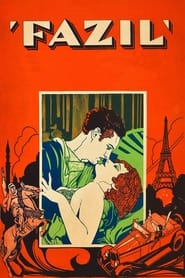 An Arab prince born and raised...
An Arab prince born and raised...Fazil 1928
An Arab prince born and raised in the desert and a beautiful Frenchwoman from Paris fall in love and marry, but the tremendous differences in their backgrounds and the cultural differences between their two different societies put strains on their marriage that may well prove irreparable.
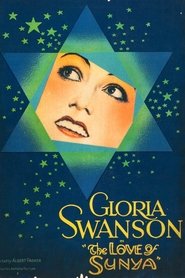 A young woman at lifes crossroads...
A young woman at lifes crossroads...The Love of Sunya 1927
A young woman at life's crossroads is granted mystic visions of how her decisions will affect her future life.
 Harriet Walter Craigs wife is an...
Harriet Walter Craigs wife is an...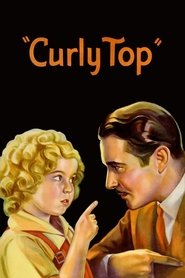 Wealthy Edward Morgan becomes charmed with...
Wealthy Edward Morgan becomes charmed with...